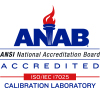
To protect public health, governments around the world require food establishments to implement a food safety program. In the United States, both the Food and Drug Administration (FDA) and the United States Department of Agriculture (USDA) require the implementation of the Hazard Analysis and Critical Control Point (HACCP) plan. Failure to comply with regulations WILL result in a noncompliance record, affecting company operations and the bottom line.
HACCP is designed for use in all sectors of the food industry, acting through analysis and control to prevent biological, chemical, and physical hazards from entering our food chain. Since the government requires the use of the HAACP plan, they also carry out inspections to ensure businesses have adequate HAACP plans and that they are being carried out properly.
Food Inspection Agencies
The USDA’s Food Safety Inspection Service (FSIS) works with other federal and state agencies to ensure meat, poultry, and egg products are safe, wholesome, correctly labeled, and packaged. The FSIS inspectors job is to verify businesses follow HAACP plans, Sanitation Standard Operating Procedures (SSOPs), and generic E. coli testing plans including Salmonella and Listeria monocytogenes.
Through its Center for Food Safety and Applied Nutrition (CFSAN), the FDA regulates dairy, juice, and seafood products, as well as retail and food services. During an inspection, the inspector will examine the production process, review records, and collect samples. CFSAN’s main responsibilities include protecting consumers against impure, unsafe, and fraudulently labeled products.
Noncompliance Records
If FSIS inspectors find deficiencies with business operations, they complete a Noncompliance Record (NR). The written record documents all faults (including non-food issues) with regulations, defines the problem(s), and provides businesses the opportunity to fix the situation to prevent it from reoccurring.
When the FDA finds a business has violated regulations, the FDA notifies the business in form of a Warning Letter calling out the violations the process for compliance, and a response date. The Warning Letter allows the business to take voluntary corrective action and gives prior notice before the FDA steps in.
Enforcement
If businesses fail to comply with regulations, the FSIS does not have to power to deem product unsafe. However, the agency can prevent production and shipment by withholding marks of inspection or suspending inspection, which stops production because businesses cannot legally apply marks of inspection without an assigned inspector. The FSIS can take these actions without prior notifications under the following circumstances:

The FSIS has the authority to seek a variety of civil actions and case dispositions in Federal Court, which could lead to seizures, injunctions, and even conviction if evidence of criminal actions is found.
If there is inadequate response or no response to Warning Letters issued by the FDA, the agency will send a follow-up letter or set a meeting with the business. However, the FDA does not need to issue a Warning Letter before enforcing regulations. In fact, the FDA can take both administrative and judicial actions to protect the public and punish offenders.
Administrative actions: product recalls, debarment of individuals or companies who have been convicted of felonies, withdrawals of product approvals, license revocations, and disqualification of clinical investigators.
Judicial actions: seizures of violative products, injunctions, criminal prosecutions, and certain civil money penalties.
Appeals
Under FSIS regulations, owners and operators of meat, poultry, and egg facilities have the right to appeal any inspection decisions or actions of inspection personnel including NR’s. If an appeal is granted the NR will be removed from the file. If the NR appeal is denied the facility has the right to appeal to the next level in the USDA Office of Field Operations chain-of-command. If the FSIS decides to take further regulatory action on an NR, the facility cannot appeal the existing NR, so it’s best if the facility takes immediate action.
FDA regulations allow businesses to appeal a decision within 30 days of the of date of the written notification. From there an appeals board decides if the argument is worthy of being heard. If the appeal is not convincing it will be terminated, if it is a hearing will be scheduled.
Preventative Solutions
An NR can occur for any number of reasons, but deviations can be prevented through the use of data loggers. To ensure the safety and quality of the final product, MadgeTech data loggers monitor temperature and humidity throughout food production processes. From cooking and cooling, to shipping and storage, MadgeTech data loggers constantly monitor conditions, simplifying compliance with government regulations.
For more information on data logging solutions for food processors, click here.
To learn more about HACCP Compliance for meat processors download our free guide.






